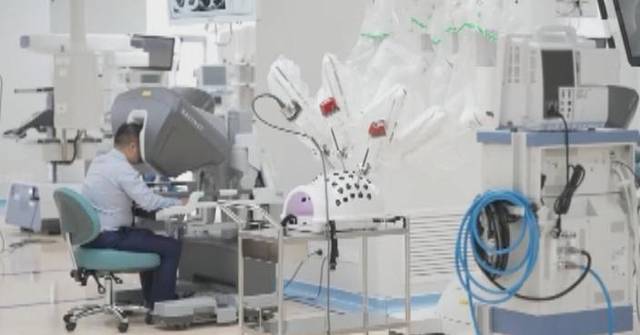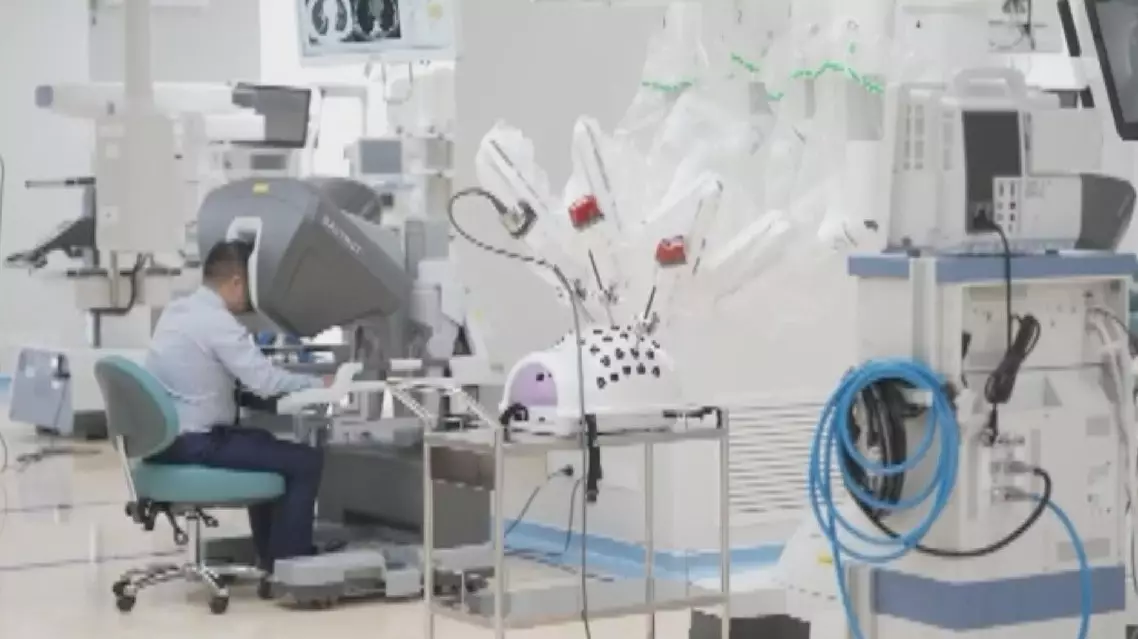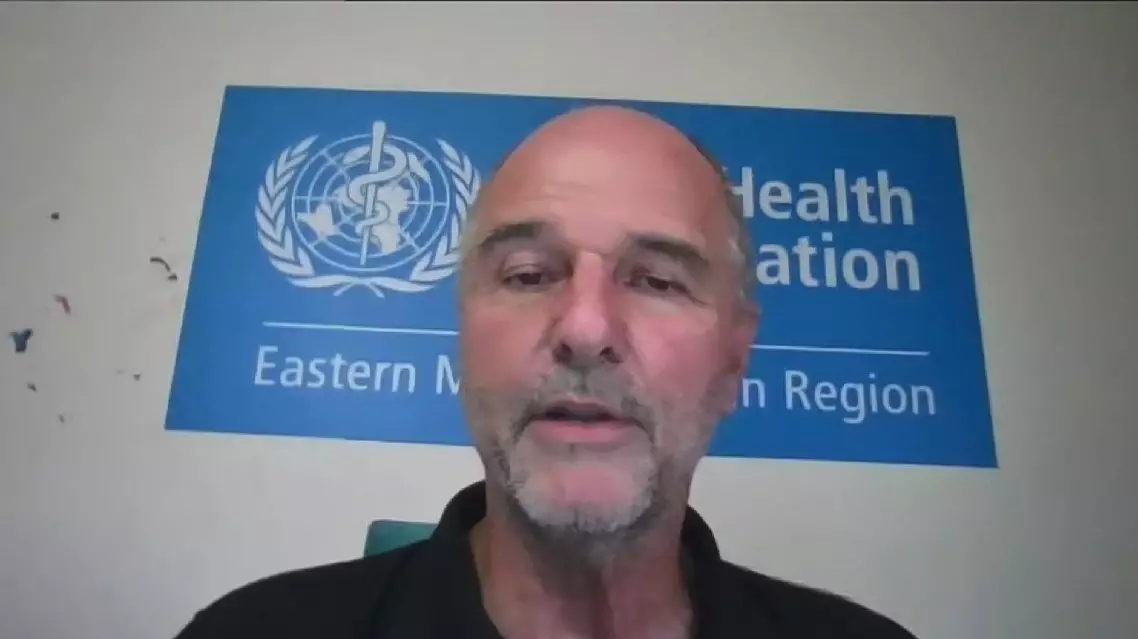Large-scale equipment renewal policy drives high-end, smart development in healthcare industry

Shanghai recently issued an action plan focused on renewing large-scale industrial equipment and expanding the application of innovative products, propelling the medical industry toward high-end and smart solutions.
Just two weeks after this policy release, U.S.-based robotic surgical system manufacturer Intuitive Surgical partnered with Shanghai Fosun Pharmaceutical to open a new plant for its surgical robot products.
“It’s an investment here locally in manufacturing, in research and development, in customer training and other areas. And so I think you can just look at this investment as a testament and as a commitment to the innovation that exists here and the talent pool and other things that exist here in Shanghai and certainly in China. One thing I was impressed by is how fast it happened and see it go from dirt to this building in 20 months. I’ve been very impressed and excited by the cooperation from the Pudong District, from Shanghai, from suppliers around China as a whole. And so, I’m excited to continue that and keep working with them,” said David Rosa, chairman of Intuitive Fosun.
This development, which took place on June 12, 2024, marked a significant shift for China, reducing its reliance on imported robots for performing minimally invasive surgeries. The Research and Development and production center, located in Shanghai, is now the largest base for the robot developer in the Asia-Pacific region, representing a 700-million-yuan investment.
“We are working to have 100 percent of the robots sold in China produced here. Once the factory is fully up and running, we will try to export our products. We will constantly optimize the production cost, so that the robots can be applied in more hospitals. Now, only the top leading hospitals are equipped with surgical robots. We hope that in the future, regular tertiary hospitals can use it,” said Wu Yifang, chairman of Fosun Pharma.
The vast factory is not only designed to produce large surgical robots. Workers are also carefully manufacturing needles for a robot dedicated to minimally invasive peripheral lung biopsies. This plant alone can meet 70 percent of the global demand for these specific robots.
“In China, lung cancer is of the highest morbidity and death rate. To curb it, the key is to discover and treat it as early as possible. But there were some limitations in terms of flexibility, stability and accuracy. But after we have this robot, doctors can do the diagnosis with the push of a button. Those nodules which are difficult to identify with traditional methods require this kind of robot. And in the future, it may also be able to help with treatment,” said Sun Jiayuan, director at Interventional Pulmonology Center of Shanghai Chest Hospital.
Sun added that the hospital conducts around 2,000 such diagnoses annually, with one-third of them utilizing robotic assistance. This aligns with Shanghai’s latest action plan, which promotes innovative medical equipment research and development, accelerates clinical applications, and encourages the inclusion of this equipment in the national medical insurance coverage.

Large-scale equipment renewal policy drives high-end, smart development in healthcare industry
Israel and Hamas have agreed to a temporary ceasefire in the Gaza Strip to allow children to be vaccinated against polio, a World Health Organization official said on Thursday.
The WHO’s representative for the occupied Palestinian Territory, Rik Peeperkorn, said during a press conference at the UN headquarters in New York that the vaccination campaign will begin on Sept. 1. According to an agreement reached by relevant parties, three-day ceasefires will be implemented consecutively in the central, southern and northern parts of the Gaza Strip, he said.
“We have a preliminary commitment for area specific humanitarian pauses during the campaign, and we call all parties to pause, of course, the fighting to allow children and families to safely access health facilities and community health outreach workers to get to the children who cannot access health facilities for polio vaccination,” he said. Peeperkorn said that the WHO has reached an agreement with the Israeli side that there will be no new evacuation orders during the vaccination period. The parties concerned also agreed that if necessary, the ceasefire in each area may be extended.
“The three days might not be enough to achieve adequate vaccination. So, we will monitor throughout the campaign, it has been agreed when needed the campaign will be extended by one day per zone, or even more when necessary,” he said.
Basem al-Naim, a member of the Hamas Political Bureau, welcomed the WHO announcement to launch a polio vaccination campaign in the Gaza Strip. Hamas expressed its willingness to cooperate with international organizations to protect Palestinian children in the Gaza Strip.
Poliomyelitis, commonly known as polio, is an acute infectious disease caused by the poliovirus, primarily affecting children under five. It can lead to paralysis or death in severe cases. With no cure available, vaccination remains the most effective and economical method of prevention.
Poliovirus was detected in environmental samples in the Gaza Strip in July. On Monday, health authorities in the Gaza Strip announced on Monday that a polio epidemic had broken out across the Palestinian enclave, blaming Israeli military operations for the damage to sanitation and medical systems that had precipitated the spread of the deadly virus.

Isreal, Hamas agree on ceasefire for polio vaccination in Gaza
link





